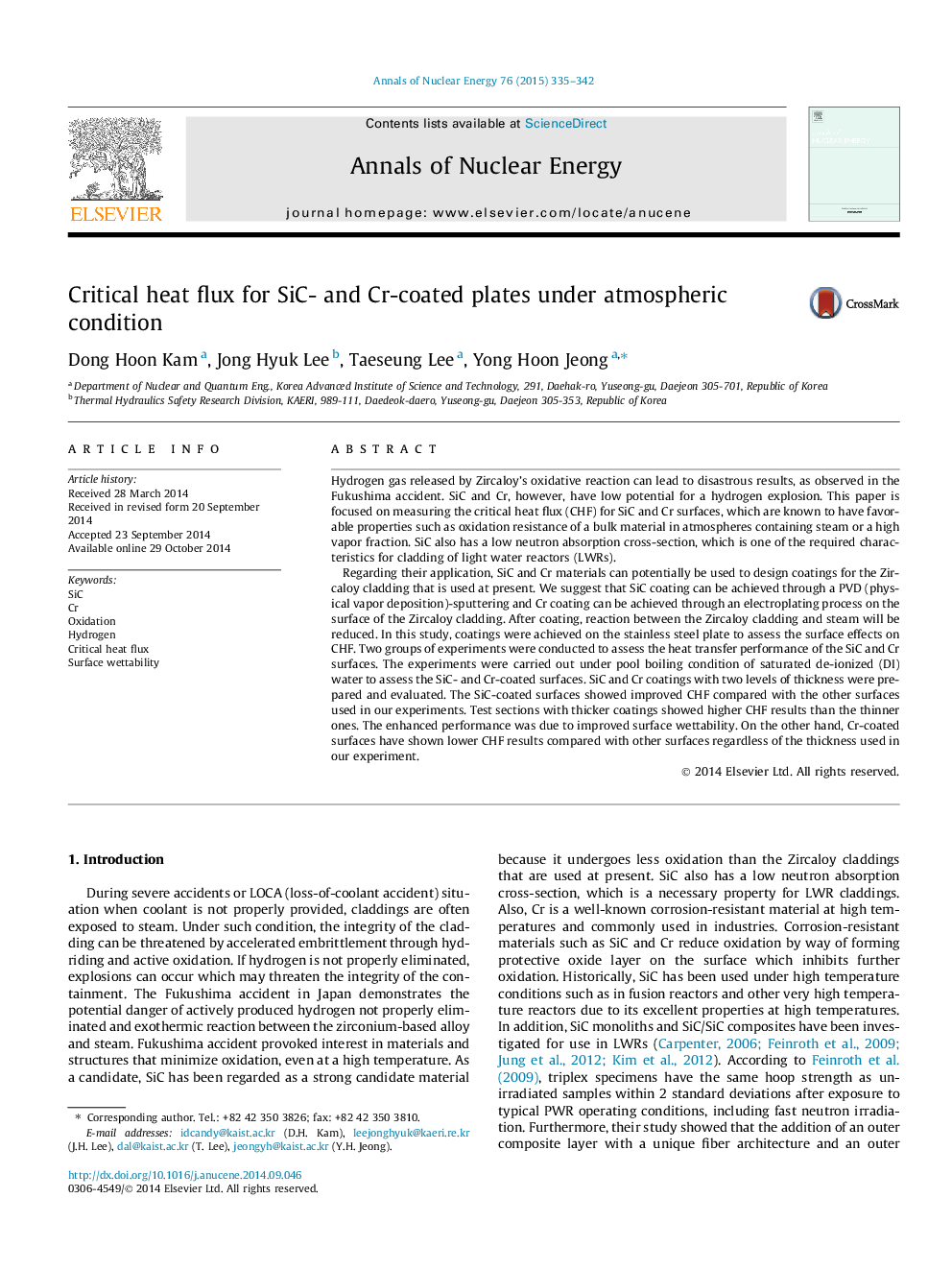| کد مقاله | کد نشریه | سال انتشار | مقاله انگلیسی | نسخه تمام متن |
|---|---|---|---|---|
| 1728200 | 1521122 | 2015 | 8 صفحه PDF | دانلود رایگان |
• CHF of surfaces for the post cladding candidate materials were measured.
• SiC surface showed enhanced results with a thickness effect in our experimental range.
• Cr surface showed lower CHF with no thickness effect in our experimental range.
• The CHF results can be explained by wettability of the surface and the bubble size.
Hydrogen gas released by Zircaloy’s oxidative reaction can lead to disastrous results, as observed in the Fukushima accident. SiC and Cr, however, have low potential for a hydrogen explosion. This paper is focused on measuring the critical heat flux (CHF) for SiC and Cr surfaces, which are known to have favorable properties such as oxidation resistance of a bulk material in atmospheres containing steam or a high vapor fraction. SiC also has a low neutron absorption cross-section, which is one of the required characteristics for cladding of light water reactors (LWRs).Regarding their application, SiC and Cr materials can potentially be used to design coatings for the Zircaloy cladding that is used at present. We suggest that SiC coating can be achieved through a PVD (physical vapor deposition)-sputtering and Cr coating can be achieved through an electroplating process on the surface of the Zircaloy cladding. After coating, reaction between the Zircaloy cladding and steam will be reduced. In this study, coatings were achieved on the stainless steel plate to assess the surface effects on CHF. Two groups of experiments were conducted to assess the heat transfer performance of the SiC and Cr surfaces. The experiments were carried out under pool boiling condition of saturated de-ionized (DI) water to assess the SiC- and Cr-coated surfaces. SiC and Cr coatings with two levels of thickness were prepared and evaluated. The SiC-coated surfaces showed improved CHF compared with the other surfaces used in our experiments. Test sections with thicker coatings showed higher CHF results than the thinner ones. The enhanced performance was due to improved surface wettability. On the other hand, Cr-coated surfaces have shown lower CHF results compared with other surfaces regardless of the thickness used in our experiment.
Journal: Annals of Nuclear Energy - Volume 76, February 2015, Pages 335–342
